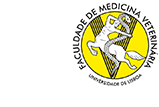Broilernet - FARMCONTROL - Portuguese Good Practices from the project's 1st Cycle
2024-04-10Intro to Good Practice
The installation of environmental monitoring and control systems aims to ensure the environmental conditions on poultry farms at optimal levels, providing comfort and best welfare conditions to the broilers, minimizing health risks and maximizing productivity.
Alarm and control systems for monitored environmental parameters allows automation or accelerated responses to the occurrence of undesirable variations in defined critical parameters.
Modern technology makes it possible to see important information on a comprehensive screen or direct to the managers' phone
The detection of critical variations in temperature (heat/cold), gas concentrations (CO 2 , NH 3 , etc.) or relative humidity (RH), activate automatic ventilation systems, window opening and other automated procedures, or human interventions, necessary to ensure the environmental stabilization of the facilities.
Optimizing environmental conditions for animal housing allows productivity gains by maximizing growth rates and reducing mortality and health risks.
Background & challenges
- Improve the environment and general housing conditions for birds (temperature, RH, CO 2, NH 3), combating thermal and environmental stress
- Mitigate the consequences of extreme weather conditions (heat and cold)
- Promote the thermal comfort of birds, maintaining the temperature at optimal levels for each stage of development
- Improve air quality inside broiler houses
Additional information
The definition of the parameters to be monitored, as well as the critical levels that trigger alarms or automatic procedures, can be adjusted to the needs of each farm, allowing those responsible to establish the standard values that best respond to their management strategies.
The activation/operation of the systems can be phased according to the economic and operational possibilities of each farm, as well as the needs and priorities defined at each moment.
These systems can communicate and interact with other information management systems, in order to optimize and simplify the overall management of the farm.
Monitoring important parameters improves broiler management
Monitoring broilers also includes daily inspections to ensure that the broilers have a good welfare
Benefits
- Guarantee of animal welfare conditions
- Productivity increase
- Increased product quality
- Reduction of management and control costs.
- Improved control of production factors (water, energy, food, etc.)
- Reduction of animal stress and mortality
- Improvement of the flock’s health conditions
- Improved risk management
- Reduction in response times to crisis situations
FactSheets of Portuguese Good Practices (.pdf)

